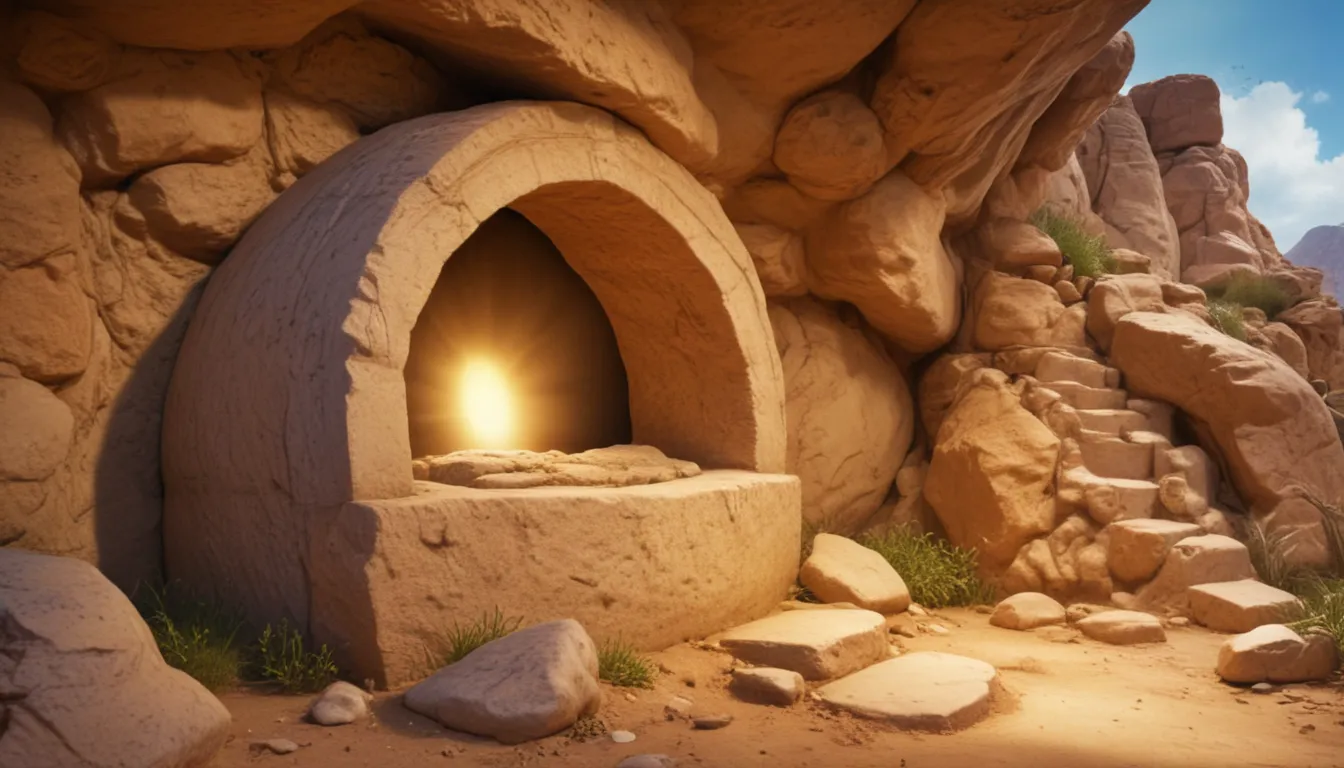
The empty tomb is a significant event in Christianity that holds immense spiritual significance. This guide aims to delve into the deeper meaning behind this symbol, exploring its historical context and how it continues to impact our understanding of Jesus’ resurrection today. As we embark on this journey, let’s dive right into what the empty tomb signifies in a spiritual sense.
The Empty Tomb: A Symbol of Hope
For Christians, the empty tomb represents hope, new beginnings, and redemption. It symbolizes that death is not the end, but rather the beginning of a new life with Christ. This idea is rooted in Jesus’ teachings about eternal life and his promise to rise again after his crucifixion (John 14:19). The empty tomb serves as proof that this promise was fulfilled, providing believers with hope for their own resurrection someday.
“The empty tomb is a powerful symbol of the victory of life over death and the power of God to conquer sin and evil.” – Billy Graham
The Empty Tomb: A Testimony to Jesus’ Divinity
Beyond being a symbol of hope, the empty tomb also serves as evidence of Jesus’ divine nature. His resurrection from the dead demonstrates that he is more than just a prophet or teacher; he is the Son of God who has conquered death itself (Romans 1:4). This truth reinforces the Christian belief in the Trinity – one God existing as three persons: Father, Son, and Holy Spirit.
“The resurrection of Jesus Christ from the dead is the central event in human history.” – John Stott
The Empty Tomb: A Call to Faith and Belief
The empty tomb invites us to place our faith in Jesus Christ as Lord and Savior. It serves as a reminder that we must believe in the resurrection of the dead and look forward to our own resurrection one day (1 Corinthians 15:20). By accepting this truth, we can experience the transformative power of God’s grace and live a life filled with purpose, joy, and love.
“I am the resurrection and the life. He who believes in me will live, even though he dies.” – John 11:25
The Empty Tomb: A Message of Forgiveness and Reconciliation
The empty tomb is not just about Jesus’ victory over death; it also signifies God’s forgiveness and reconciliation with humanity. Through his resurrection, Jesus became the ultimate sacrifice for our sins, allowing us to be reunited with our creator (2 Corinthians 5:18-20). This act of grace offers hope and healing to those who seek it, encouraging them to live lives of repentance and restoration.
“God was reconciling the world to himself in Christ, not counting people’s sins against them.” – 2 Corinthians 5:19
The Empty Tomb: A Foundation for Our Faith
Finally, the empty tomb serves as a foundation upon which our faith is built. It provides us with historical evidence that supports the Christian belief in the resurrection of Jesus Christ. As we study this event and its significance, our faith grows stronger, allowing us to face life’s challenges with courage and confidence (1 Peter 1:3-9).
“Now I would remind you, brothers, of the gospel I preached to you, which you received, in which you stand, and by which you are being saved, if you hold fast to the word I preached to you—unless you believed in vain. For I delivered to you as of first importance what I also received: that Christ died for our sins in accordance with the Scriptures, that he was buried, that he was raised on the third day in accordance with the Scriptures.” – 1 Corinthians 15:1-4
Conclusion
The spiritual meaning of the empty tomb is multifaceted, encompassing hope, divinity, faith, forgiveness, and a foundation for our belief system. As we continue to study this significant event in Christianity, let us remember that it serves as a powerful reminder of God’s love, grace, and power over death. May the empty tomb inspire you to deepen your relationship with Christ and share the good news of his resurrection with others.





